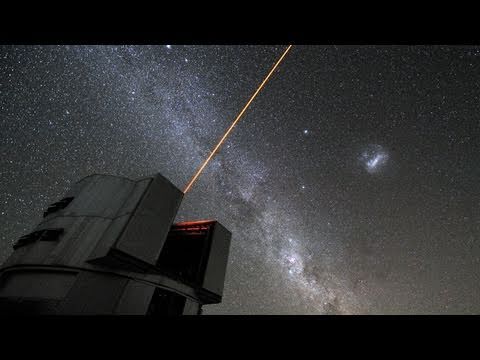What do you think?
The concept of infinity has baffled people for thousands of years. There have been many perspectives on how this could or could not be possible but no one knows for sure. There is even a video on YouTube of a gentleman who says it is an illusion. That is great and all but what about the inevitable (that number +1)? When does it stop? It might not and we are assuming our human minds are capable of understanding this mathematical phenomenon. This video examines this incredible question in terms of the universe:
How far do the stars stretch out into space? And what’s beyond them? In modern times, we built giant telescopes that have allowed us to cast our gaze deep into the universe. Astronomers have been able to look back to near the time of its birth. They’ve reconstructed the course of cosmic history in astonishing detail.
From intensive computer modeling, and myriad close observations, they’ve uncovered important clues to its ongoing evolution. Many now conclude that what we can see, the stars and galaxies that stretch out to the limits of our vision, represent only a small fraction of all there is.
This is a brief history on the matter which actually starts with Pi. The Greek mathematician Pythagoras gets into this incredible question:
Does the universe go on forever? Where do we fit within it? And how would the great thinkers have wrapped their brains around the far-out ideas on today’s cutting edge?
For those who find infinity hard to grasp, even troubling, you’re not alone. It’s a concept that has long tormented even the best minds.
Over two thousand years ago, the Greek mathematician Pythagoras and his followers saw numerical relationships as the key to understanding the world around them.
(here is a statue of Pythagoras)
But in their investigation of geometric shapes, they discovered that some important ratios could not be expressed in simple numbers.
Take the circumference of a circle to its diameter, called Pi.
Computer scientists recently calculated Pi to 5 trillion digits, confirming what the Greeks learned: there are no repeating patterns and no ending in sight.
The discovery of the so-called irrational numbers like Pi was so disturbing, legend has it, that one member of the Pythagorian cult, Hippassus, was drowned at sea for divulging their existence.
Here is one interesting debate happening in the comments thread:
Commenter ER had this to say:
You cannot divide matter infinitely many times
And commenter JJ had this to say in reply:
it is actually infinite. Our microscope and telescope as for now is limited that is why we do not know what is outside the observable universe and the last smallest piece of an atom
What do you think? Is this a concept that is beyond our grasp? Feel free to comment!


it’s impossible to comprehend forever, at least the true meaning of it.
We can’t even get close to comprehending the vastness of the universe.
I just wanna know what expansion is expanding Into , and speeding up ??
The concept of total nothingness fascinates me the other side of the edge , nothimg no time not light not darkness
I saw the edge of the universe..
It was nothing…
Forever and a day.
Nope just to big to even imagine
Can’t tell if the universe is round so mind mind can’t wrap around it
It’s mostly rectangular with slight deviations at the corners – but it’s expanding…
It looks like a giant ziplock bag – expanding like a balloon.
Into to what though lol
The thought of an infinite universe alone should make one say, hey WTF…. planets floating a big ball of fire just burning should make one say ,Yo WTF
Looks like a void. Weird picture. There weren’t any other universes either. I think it came from my DNA.
Except for all the physical forces we don’t know about – like how energy patterns and flow affect us – things happen in progression emanating from an impetus like what we call the Big Bang. Gravity and entropy create celestial architecture. If the universe is finite we are moving toward a colloidal type array of matter. If its infinite the matter will continue to seek entropy until at some point it collapses back down into a dense “primordial” mass that is instantly unstable and explodes again into another Big Bang. It’s a cycle.
Not grasping the acceleration or the infinite nature of the universe. One thing I know is it is basically beyond our comprehension.
Considering that it is impossible for it to be anything but infinite, yes, absolutely.